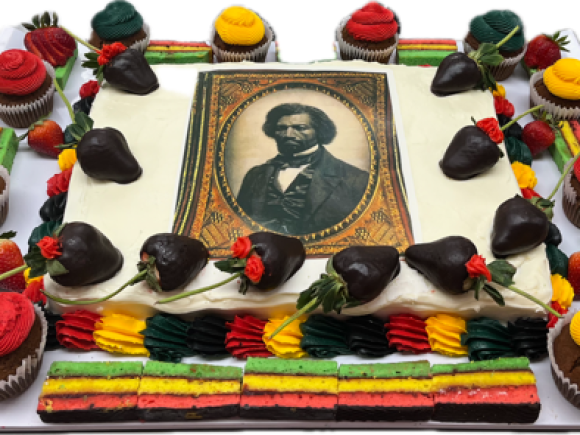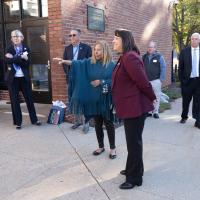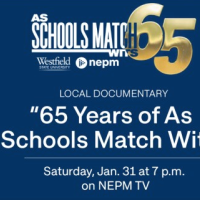
Frederick Douglass’ Legacy Honored with Douglass Day Transcribe-a-Thon

This year's Douglass Day, commemorating Black history preservation through a global transcription effort.
On February 14, Westfield State University continued its participation in Douglass Day, an annual event commemorating Black history preservation through a global transcription effort. In celebration of Frederick Douglass, thousands of people come together to digitize and transcribe historical records, increasing the accessibility of Black history for coming generations.
Westfield State has been actively involved in Douglass Day transcription events since 2018. The emphasis this year focused on transcribing content from the Library of Congress's African American Perspectives collection and was held in the Ely Library from 11:30 a.m. to 3:00 p.m.
In an article from The Republican, journalist Joseph Carvalho III, illuminated the closely linked significance of Douglass Day with an exchange between Frederick Douglass and renowned abolitionist John Brown in 1847. While they were together, Brown, who had relocated to Springfield the previous year, shared his vision for armed resistance and vehemently condemned slavery. Douglass was ultimately profoundly affected by the encounter, which shaped his opinions on abolition and fortified his determination to fight for freedom.
Furthermore, with its Black community and white allies actively fighting against slavery, Springfield, a key stop on the Underground Railroad, was involved in the abolitionist movement at large. Brown went on to found the League of Gileadites, an anti-slavery militia that defended free Black communities from slave-catchers, as a result of his experiences in the city. Later, his extreme activism would result in the Harpers Ferry raid, which was a crucial event in the years preceding the Civil War.
The University Dining staff and crew were also in high spirits after winning best cake design in the national Douglass Day competition.

With a poignant and fruitful visit from Nettie Washington, the great-great-granddaughter of Frederick Douglass and great-granddaughter of Booker T. Washington, this year’s participation in Douglass Day serves as a poignant reminder of the University’s original mission of providing accessible education to any person regardless of their background or creed, as established by Horace Mann. In modernity, Westfield State continues to carry out its promise of inclusion.


